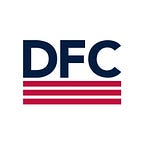By Algene Sajery, Vice President of DFC’s Office of External Affairs and Head of DFC’s Global Gender Equity Initiatives
On this International Women’s Day, I am inspired by women like my late grandmother, Laura Roberts. Like so many women in Africa, my grandmother was an entrepreneur out of both instinct and necessity. Born in Grand Bassa County, Liberia in 1930 and raised in an environment where opportunities for women entrepreneurs in the formal economy were limited, Ma Laura, as she was affectionately known, grew up surrounded by women who operated small shops that provided an important service to the community as well as income for their families. Ma Laura’s own shop in the Crown Hill neighborhood of Monrovia was where she put her entrepreneurial skills, especially as a formidable negotiator, to use. It allowed her to earn a modest living that helped provide funds to pay missionary school fees for her five children.
My grandmother’s story is one of steady perseverance against multiple challenges, including an inability to access the credit that is so helpful in starting and growing a business. Many of the same challenges she faced persist today. In Liberia, as in much of the developing world, women are less likely to work in the formal economy, but also less likely to have access to loans and financial services to help them succeed as entrepreneurs.
These significant gender disparities illustrate why an effective international development policy must have a strong gender strategy at its core. As the United-Nations Secretary General, Antonio Guterres, says, “Gender equality is fundamentally a question of power. Centuries of discrimination and deep-rooted patriarchy have created a yawning gender power gap in our economies, our political systems and our corporations. The evidence is everywhere.” Research shows that despite the hurdles women confront accessing jobs, credit, and sufficient wages, when they are able to increase their incomes, they spend most of it on things like education, healthcare, and housing, that bring strong benefits to their families and communities.
Last month, after a career as a policy staffer working in the United States Congress to advance human rights, global health, and economic opportunity, I joined the Biden-Harris Administration as the U.S. International Development Finance Corporation (DFC)’s Vice President of External Affairs. Today, I am honored to also assume the role of Head of Global Gender Equity Initiatives, as well as serve as DFC’s lead representative on the newly launched White House Gender Policy Council. One of my priorities is expanding the impact of DFC’s 2X Women’s Initiative, which supports projects that are owned by or led by women or which provide a product or service that delivers strong benefits to women. Over the past three years, the 2X Women’s Initiative has partnered with private investors to catalyze more than $7 billion to women’s economic empowerment. More than 12 million women around the world have benefited. And by teaming up with our G7 counterparts on the 2X Challenge, we’ve driven additional investment. This March, on the occasion of Women’s History Month, we will be setting new targets to increase our investments in projects that benefit women. We are also working with the DFI Gender Finance Collaborative and GenderSmart to launch a gender lens training program for all of DFC’s Investment Officers.
The projects we support through 2X are helping female entrepreneurs and small business owners from Latin America to Sub-Saharan Africa and Southeast Asia access critical financing. In El Salvador, we’ve invested in a project to strengthen water infrastructure so that more families can access clean water at home and fewer women have to spend hours collecting it. In India, we’re supporting a project that is providing training and sourcing milk from small rural farmers, with a strong focus on reaching female farmers. In Uganda, our financing has enabled a local jewelry manufacturer to employ 200 women and weather the disruptions of COVID-19.
Indeed, as the world confronts a global pandemic that threatens livelihoods as well as lives, the need to support women has only grown stronger. And the opportunity is at least as great as the need. Worldwide women represent a multi-trillion dollar investment opportunity and the more we support women, the more we can advance critical development goals, from advancing food security to improving health outcomes.
